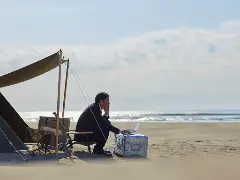

By Julie Hall, The Estate Lady® and author of Inheriting Clutter: How to Calm the Chaos Your Parents Leave Behind
Personal property and heirlooms — we spend a lifetime accumulating them, inheriting them, caring for them, collecting them, and talking about them. But we rarely know their current values and we rarely make a plan for what happens to them upon illness or death. Here are some serious mistakes that are commonly made:
Neglecting to prepare for the inevitable. Engaging in conversations with our older parents is crucial to helping everyone involved when a crisis, illness or death occurs. It’s part of one of the most important game plans we need to have, yet it is often overlooked or put off. How can you know what your parents want if you don’t ask them? Do they have a will and all of their legal documents such as Advanced Health Directives and others? Are they in debt or can they financially live comfortably? Boomer children may shy away from asking these personal questions but we need to get over the shyness and begin the conversations.
A great way to start is showing plenty of love. Here are some examples:
“Mom, you’ve always been there for me and now it is time for me to be here for you. I think it’s time we talk about some things we’ve never talked about before.”
“Dad, when Uncle Joe passed away, the family fought for years. I don’t want that to happen to us. Can we make a plan to avoid that?”
“Mom and Dad, we’d like to talk with you about your future wishes. We do not want to be left to guess and then guess incorrectly. Let’s talk about what you want and put a plan in place to make sure that happens.”
Unrealistic expectations. Many elderly parents and their Boomer children feel their items are worth more than they actually are. Some believe their children will keep more than they actually do. Styles and lifestyles have changed, values have changed, and what people want has also changed. The younger generation does not want what grandma and grandpa owned. This flooding of the market means we have too much supply and not enough demand, sending many values downward.
Not knowing values before taking action. Many Boomer children are hasty with their parents’ possessions. You wouldn’t believe what we pull out of dumpsters! Once a crisis occurs, such as an illness or death, heirlooms with value can end up in a dumpster or yard sale. Many adult children neglect to hire a personal property appraiser to ascertain what’s valuable before distribution and/or disposal. Know the values or someone else will. Remember, just because an item is old, does not mean it is valuable.
Underestimating the Process. If the home sells right away, how long would it take you to disassemble the house? It is a process that takes forethought and organization. People beome overwhelmed by it because they don’t know where to begin and it can stretch out into a very long and tedious task if distracted. The whole process takes much longer than most people realize.
Waiting until a crisis situation occurs leads to hasty decisions. This is not advisable if you want to work with trusted resources and have the process flow smoothly. There needs to be a game plan, if only for your own sanity.
Not making a plan for your possessions while you are here, as well as after you’re gone. Boomer children are left to make serious decisions often in the middle of a crisis, or worse. Feuding amongst themselves is common because no guidance was left for them. There also seems to be one child or sibling who believes they are entitled to the “lion’s share” or another that says, “Mom told me I could have that.” Have these conversations with your adult children or elderly parents today. Tip: Gift possessions while still living. This minimizes future feuds and offers joy to both the giver as well as the receiver.
Not thinning out the home as you age. Adult children are often blindsided (and even resentful) that nothing was done to thin out or begin the process while their parents were still living. Older parents should create a master wish list and ask what the heirs would like to have. It would be ideal if they could do this and then have values assigned by an objective professional so the children could at least divide the estate equitably. If adult children are willing to help de-clutter, let them.
Not researching companies or professionals to help you. Research the companies or professionals you are looking to hire. It is very important to conduct due diligence so you can have peace of mind later on.
Not sharing final wishes and vital information prior to infirmity or death. Depression Era parents have a tendency to not share their final wishes with their children. Known as the “silent” generation, they don’t easily share vital documents, financial information, a copy of their Will/Trust (if they don’t have one, that should be a top priority), and the location of all of these legal and personal documents, including the location of keys and passwords or cash and jewelry.
Having worked with thousands of clients through the years, those who leave a legacy of love and preparation also leave a much easier path while their loved ones are grieving.
BIO: Julie Hall, The Estate Lady®, is a nationally recognized personal property expert who has assisted thousands of individuals across the country in the daunting and often painful process of managing their deceased loved one’s possessions. Her new book, Inheriting Clutter: How to Calm the Chaos Your Parents Leave Behind [W Publishing, is now available in paperback and ebook formats wherever books are sold. Find her at https://www.theestatelady.com and at https://www.facebook.com/TheEstateLady/








Comments
Post a Comment